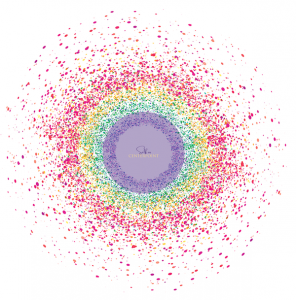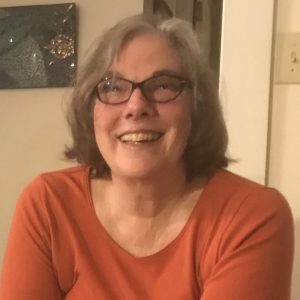 I was writing this essay to send out on the 4th of July, Independence Day, but I ended up in the hospital for a couple of days and then had to recover. I am well now, almost.
I was writing this essay to send out on the 4th of July, Independence Day, but I ended up in the hospital for a couple of days and then had to recover. I am well now, almost.
I have rewritten and edited my thoughts on Neighborly Love a couple of times as it addresses the root solution to the tangled mess of our global and personal social issues.
So imagine you are thinking about the meaning of independence and then read my thoughts on Neighborly Love.
What is a Declaration?
4th of July asks us to think of the Declaration of Independence.
The Declaration of Independence was about rights, governing and geopolitics and justified a war of revolution.
A declaration makes its subject perfectly clear and forms a ground for a clear intention and clear action.
245 years after the signing of this most famous declaration of collective independence, we, individually and globally, need a Declaration of Neighborly Love.
The Universal Golden Rule
In every great spiritual tradition, loving thy neighbor as thyself is a guiding (Golden) rule. I’ve known this rule all my life, but only in the last few weeks have I thought about neighborly love as something each and everyone of us must contemplate and declare in our own words.
How different would our world be if at puberty, each human being was asked to write their own declaration of neighborly love. Some where between 12-14 our sense of self and sense of other is ready to take up social responsibility.
But whether you are 14, 45, 67 or older, it is time, right NOW, to declare your commitment to neighborly love.
Tribal or Neighborly?
Neighborly love is not tribal love. Loving your neighbor is not making an invitation to join your tribe or being willing to join their’s. Tribes declare and maintain similarities and loyalties often to the point of war.
Neighborly love is a love that rises from a reverence for differences and the wonder of strangeness. Even those who we share many similarities are different from us and we are different from them. I need to pause here for a moment and contemplate how I judge someone “different” and how I experience someone as a “stranger”. I fail to see them as neighbor.
The Circles of Similarities & Differences
If I make myself a centerpoint in a circle of similarity and familiarity, what is close to the center/me is essentially the same and familiar and any movement away from the center is a growing difference. Any thing outside the circle of similarity and familiarity is strange and beyond my imagination or understanding. The more I get comfortable with difference the larger my circle of familiarity grows and the fewer souls appear strange, alien, unloveable, and unknowable.
A painful reality is how often tribal belonging requires us to alienate others. And how a lack of reverence for differences can make us indifferent and passive or hostile and aggressive even in subtle ways. What grows in our hearts are the shadows of contempt, superiority, and disregard.
Neighborly love makes differences and strangeness a celebration of both our shared humanity and the uniqueness of our individualities.
SELF LOVE
Matthew 22:36-40
King James Version
36 Master, which is the great commandment in the law?
37 Jesus said unto him, Thou shalt love the Lord thy God with all thy heart, and with all thy soul, and with all thy mind. 38 This is the first and great commandment. 39 And the second is like unto it, Thou shalt love thy neighbor as thyself. 40 On these two commandments hang all the law and the prophets.
Neighborly love begins with self-love. Self-love supports feelings of active interest, acceptance, wonder, empathy, forgiveness, and so many more elements of neighborliness.
Self-love is a preparation, an essential attitude, and a perspective, but it is not the deed, not the evidence, not the winning ticket of neighborly love. Neighborly love only wins in action, in the full out expression living in thought, word, and deed for all the others no matter how different or how strange they seem to you.
Declaring Your Neighborly Love
To declare is “to make quite clear.”
As I am writing this post, I am examining my soul and my life for clarity in my own history of being different and loving differences. of longing to be the same and struggling with, even hating differences (mine and other’s). Often I have been seen as strange and been rejected for my strangeness.
I grew up being seen as different, treated differently, and feeling different. Feeling different surfaces as a longing to belong, a longing to fit in, and a confusion between self-love and self-hatred. I wondered who I was and why I was not like others. I wondered what made me different. I became socially anxious. Like most, I thought I needed to be loved by others in order to love myself.
Let me share a few of my earliest painful experiences of my differences. From age 2 to 6, I lived in an upper middle class neighborhood on Long Island. I must have been very different as I was the chosen target for teasing, bullying, and excluding by the other kids in the neighborhood. My home was different as it had, unlike the other homes, a swimming pool and overlooked the large pond. My parents were different as both of them were hospitalized for mental illness. My sister was also hospitalized for celiac disease. I was different in my family because I was never hospitalized. The list goes on, but enough for now. You get the idea, being different was painful, confusing and isolating even before I got to school age.
Yet, I was also blessed by differences. I loved in spite of differences. My best friend was physically different as she had cerebral palsy and another loved early friend was different cognitively as she had Down’s Syndrome.
How have you experienced being different? How have you felt strange and excluded? How have you rejected the differences of others? Start with your earliest memories.
The Fear of Differences
There are two core reasons living in the presence of tribal love and the absence of neighborly love: fear of the difference in others and fear of the difference in self.
If you want to make your neighborly love very clear, I suggest you address these two fears first. Make a two-column list of your fear of differences: other-differences and self-differences. When you turn your feelings into words on paper they become more conscious and more manageable. They become a threshold to love, albeit a challenging one.
Then write a draft of your Declaration of Neighborly Love. Begin this declaration with your declaration of self-love. Love yourself the way you have always wanted, longed for others to love you. With enough self-love, you can love others whether they love you or not.
My conversations with clients have taught me and given me so much practice in the deed of neighborly love. I love each client in this neighborly way. I don’t need similarities or agreements to engage my interest, listening, and care.
I haven’t written my own Declaration of Neighborly Love, although this post is a great beginning.
Over the thirty plus years I have been working with the mysteries of Selfhood and the thousands of conversations I have had with others to support their self-imagining journey, I experience fireworks, amazingly beautiful fireworks, every time a soul lights up with self-love.
I know in that moment there is more neighborly love.
I was tempted to say more “world” love or “universal” love or “cosmic” love, but those images are too distant. “Neighborly” keeps love close and personal. It fills the world and the cosmos with intimate goodness.
Make your commitment to neighborly love quite clear to yourself and others.

